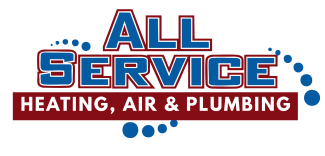Winter in North Dallas, TX can be tough on your heat pump. The weather patterns subject your heat pump to a lot of wear and tear, and the extreme temperatures can easily damage it beyond repair. That’s why it’s important to be aware of these seven common heat pump problems during the winter.
1. Frozen Evaporator Coils
The evaporator coils inside your heat pump can freeze during winter. This is due to a lack of refrigerant in the system. When the coils freeze, they can no longer absorb heat from the air.
When coils freeze, they cause your heat pump to overheat and eventually break down. You must replace such evaporator coils immediately to prevent further damage to your heat pump. The best way to avoid frozen coils is to do air conditioning repairs before the winter season.
2. Broken Condenser Fan
The condenser fan is responsible for cooling the refrigerant in the system. If this fan breaks, the refrigerant will overheat and cause the system to shut down. Common fan breakages result from a buildup of dirt and debris or a manufacturing defect.
A broken condenser fan is a serious problem because it can lead to complete system failure. It can also cause the refrigerant to leak, which can be dangerous.
3. Clogged Air Filters
Accumulation of dirt and debris in the air filters is one of the most common heat pump problems during winter. Clogged air filters restrict airflow, which can cause the system to overheat. It can also lead to ice buildup on the coils.
If your heat pump is not working as efficiently as it used to, check the air filters and clean or replace them as needed. You can also fix new, high-quality filters to prevent dirt and debris from accumulating in the future.
4. Faulty Thermostat
The thermostat controls the temperature of your home; if it’s not working properly, your heat pump will have a hard time keeping your home warm. The most common problems with thermostats include incorrect calibration and loose wiring. They occur due to either human error or wear and tear over time.
A faulty thermostat can cause the system to overheat or shut down completely. It can also lead to uneven heating in your home.
5. Restricted Airflow
As with any HVAC system, restricted airflow is one of the biggest problems your heat pump can face. It’s often due to a buildup of dirt and debris in the vents and ductwork. This buildup can restrict airflow and cause the system to overheat.
It can also lead to ice buildup on the coils, which can cause the system to shut down. To prevent this problem, regularly clean your vents and ductwork. You can also install new, high-quality filters to prevent dirt and debris from accumulating in the future.
6. Faulty Electrical Components
Heat pumps rely on electrical components to operate; if any of these components are defective, it can cause the system to fail. Common problems include loose wiring, damaged circuit boards, burned-out motors, and faulty switches.
When electrical components fail, it can cause the system to overheat or shut down completely. It can also lead to fire hazards. Preventive maintenance is the best way to avoid this problem.
7. Leaking Refrigerant
Refrigerant leaks are one of the most serious problems your heat pump can face. They often occur due to a manufacturing defect or damage to the system. If left unchecked, a refrigerant leak can cause the system to overheat and eventually break down.
Refrigerant leaks can also be dangerous because they can cause the system to release harmful chemicals into the air. If you notice a refrigerant leak, you must immediately call a professional heat pump repair technician. Attempting to repair the problem yourself can be dangerous and may cause further damage to the system.
Heat pumps are a great way to keep your home warm in winter, but they can face serious problems. Call All Service Heating & Air to perform HVAC maintenance or repairs if you notice any of these problems. Our technicians will inspect your system and make the necessary repairs to keep your heat pump running.
Image provided by iStock

